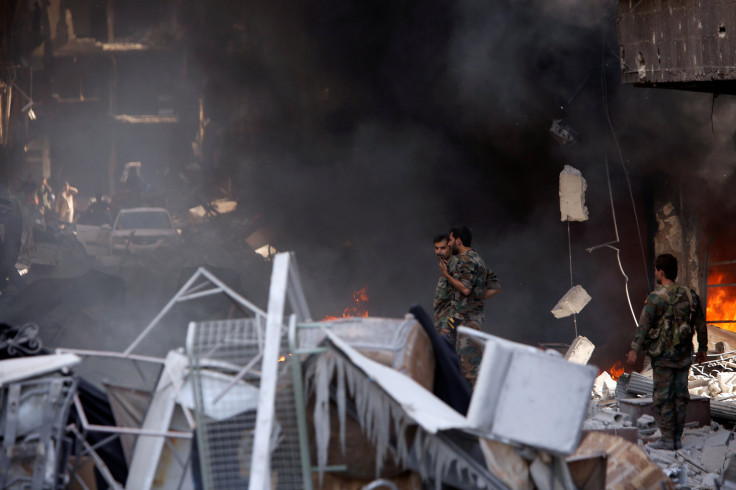Sarin, Chlorine Attacks In Syria In March 2017 Confirmed, Perpetrator Not Identified

The Organisation for the Prohibition of Chemical Weapons (OPCW) confirmed in a release Wednesday that the banned nerve agent sarin and toxic chemical chlorine were "very likely" used as chemical weapons in Syria attacks on March 24 and 25, 2017.
According to the report by the OPCW fact-finding mission (FFM), sarin was used in the first attack that took place south of Ltamenah on March 24 and chlorine was "very likely" used in the second attack at a hospital in Ltamenah the following day.
The fact-finding mission of the chemical weapons watchdog reached the conclusion based on separate witness testimony, epidemiological analysis and environmental samples.
"The collection of information and material, interviewing witnesses, as well as analysis of samples required a longer period of time to draw conclusions," the news release said.
The report has been passed on to the UN Security Council through the secretary-general.
The FFM was set up in 2014 in response to allegations of chemical weapon attacks in Syria, with an order “to establish facts surrounding allegations of the use of toxic chemicals, reportedly chlorine, for hostile purposes in the Syrian Arab Republic."
However, the report did not include identifying who is responsible for the alleged attacks. The OPCW-UN Joint Investigative Mechanism, set up by the UN Security Council, was tasked with identifying the perpetrator s of such attacks.
Latamneh surgical hospital was hit by multiple barrel bombs, Physicians for Human Rights, a human rights organization, reported about the attack.
The attack only caused minor damages to the hospital, a facility built into a cave to protect it from air strikes, but multiple sources inside the hospital said at least one of the bombs contained a chemical agent, the organization said at the time. However, a coordinator at the hospital later told the NGO that chemical exposure led to the death of one of the hospital’s doctors.
“The FFM has previously confirmed with a 'high degree of confidence' the use of chlorine, sulfur mustard, and sarin as weapons,” the report said.
OPCW is now planning to release a report on a suspected chemical attack that occurred on April 7 on the Damascus suburb of Douma. The attack left dozens dead and hundreds injured.
After the attack, Violations Documentation Center (VDC) cited a member of the Syria Civil Defence saying he smelt chlorine in the air, BBC reported. The attack also prompted a series of coordinated strikes on facilities associated with Syria's chemical weapons program from the U.S., France and the United Kingdom.
A UN-OPCW investigative team blamed Syrian government forces for an alleged Sarin Chemical attack nearby Khan Sheikhoun on April 4, 2017 that killed scores of people, The Washington post reported.
However, Syria and its allies repeatedly denied the use of chemical weapons and have sought to place the blame on rebel groups. The Syrian Civil War, which began in 2011, has left more than 350,000 people dead.
© Copyright IBTimes 2025. All rights reserved.





















